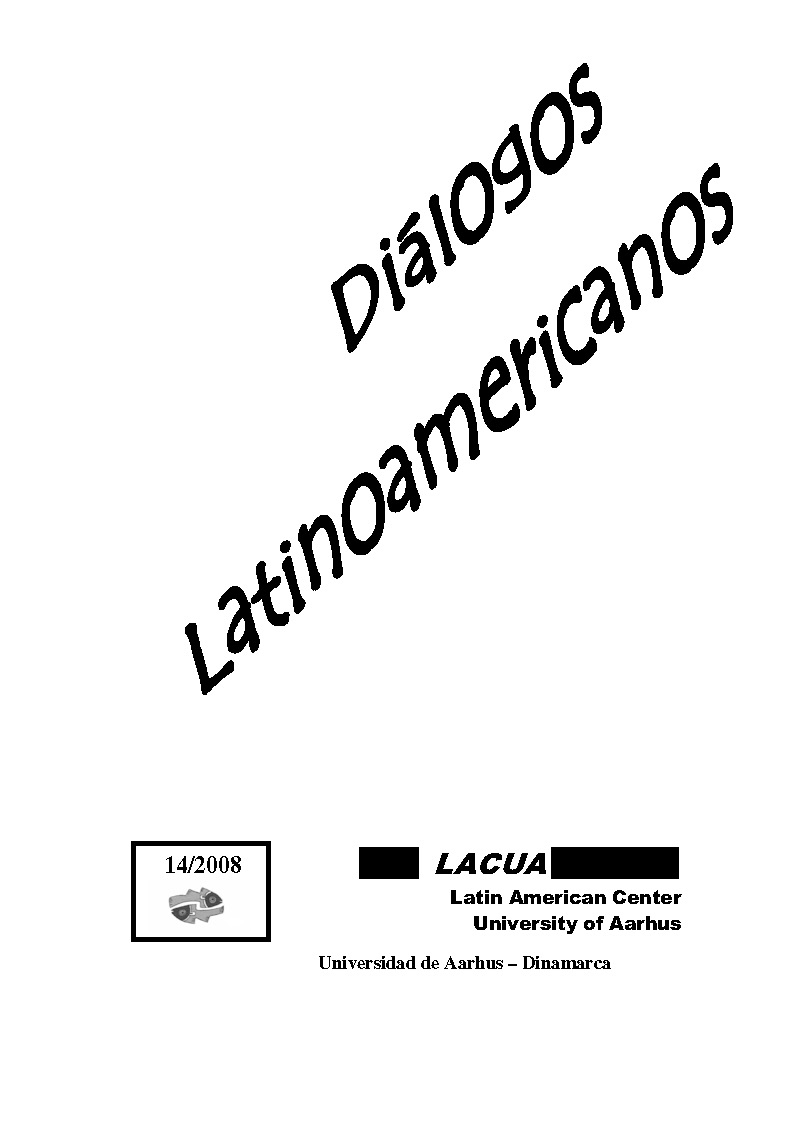Entre la literatura y la eugenesia
el ideal de amor, según José Ingenieros
DOI:
https://doi.org/10.7146/dl.v9i14.113600Keywords:
José Ingenieros, ideal, literature, modernismo, love, eugenicsAbstract
The aim of this paper is to analyse the process of naturalization –
conceptual and rethorical– applied to the concept of ideal in the José
Ingenieros works. The concept of ideal de amor is inherited from
Stendhal, and Ingenieros modifies this concept to the point of satisfy,
simultaneously, the rhetorics treatment of the subject –according to
the modernismo aesthetics– and his proper understanding of eugenics
development of the humankind.
It is interesting to note that, while Stendhal talks about the love
process in methaphorical terms, Ingenieros treats the topic in a
extremely literal sense, and as a process exclusively natural, even
when he is informing about his pathological deviations. It is an
example about the rol performed by the biological sciences in the finde-
siècle, when they were transformed in a cognitive diallect used
literal and metaphorically to explain the natural and social reality.
References
universitarias de la segunda mitad del siglo XIX. FCE: México / Bs. As.
Bénichou, Paul (1999) The Consecration of the Writer, 1750-1830. Translated by Mark
Jensen. University of Nebraska Press: Lincoln / London.
Glick, Thomas F. (1992) ‘El impacto del darwinismo en la Europa mediterránea y
Latinoamérica’ en Antonio Lafuente y José Sala Catalá (editores). Ciencia
colonial en América. Alianza: Madrid, 319-350.
González Echevarría, Roberto (1985) ‘The Case of Speaking Statue: Ariel and the
Magisterial Rhetoric of the Latin American Essay’ in The Voice of the Masters.
Writing and Authority in Modern Latin American Literature. Texas UP: Austin,
8-32.
Ingegnieros [sic], José (1908) Al margen de la ciencia. Lajouane y Cía.: Bs. As.
Ingenieros, José (1919) ‘Cómo nace el amor’, Revista de Filosofía, X: 4, 141-160.
--------- (1962a) ‘La evolución de las ideas argentinas’ en Obras completas. Tomo IV.
Mar Océano: Bs. As., 17-379.
--------- (1962b) ‘Hacia una moral sin dogmas’ en Obras completas. Tomo VII. Mar
Océano: Bs. As., 207-298.
--------- (1962c) ‘El hombre mediocre’ en Obras completas. Tomo VII. Mar Océano:
Bs. As., 85-206.
--------- (1962d) ‘Las fuerzas morales’ en Obras completas. Tomo VII. Mar Océano: Bs.
As., 19-84.
--------- (1962e) ‘Principios de Psicología’ en Obras completas. Tomo III. Mar Océano:
Bs. As., 9-224.
--------- (1962f) ‘La Psicopatología en el Arte’ en Obras completas. Tomo I. Mar
Océano: Bs. As., 299-413.
-------- (1962g) ‘Proposiciones relativas al porvenir de la filosofía’ en Obras completas.
Tomo VII. Mar Océano, Bs. As., 299-342.
--------- (1962h) ‘Tratado del Amor’ en Obras completas. Tomo III. Mar Océano, Bs.
As., 227-401.
Jitrik, Noé (1980) El mundo del ochenta. CEAL: Bs. As.
Martí, José (1977) ‘El poema del Niágara’ [1882] en Nuestra América. Prólogo de Juan
Marinello. Selección y notas de Hugo Achúgar. Cronología de Cintio Vitier.
Biblioteca Ayacucho: Caracas.
Panessi, Jorge (2001) ‘Tratado del amor de José Ingenieros’, Revista Discurso, I: 1.
URL http://www.revista.discurso.org/articulos.htm [consulta efectuada el 31 / 7 /
2003].
Rama, Ángel (1985) Las máscaras democráticas del modernismo. Fundación Ángel
Rama / Arca: Montevideo.
Ramos, Julio (1989) Desencuentros de la modernidad en América Latina. Literatura y
política en el siglo XIX. FCE: México.
Real de Azúa, Carlos (1987) ‘Ambiente espiritual del 900’ en Escritos. Arca:
Montevideo, 145-165.
Rodó, José Enrique (1967) ‘Ariel’ [1900] en Obras completas. Introducción, prólogo y
notas de
Emir Rodríguez Monegal. Aguilar: Madrid.
Sarlo, Beatriz (1994) ‘El relativismo absoluto o cómo el mercado y la sociología
reflexionan sobre estética’, Punto de Vista, XVII: 48, 27-31.
-------- (2004) El imperio de los sentimientos. Narraciones de circulación periódica en
Senet, Rodolfo (1926) ‘La obra psicológica de Ingenieros’, Revista de Filosofía, XII: 1,
114-139.
Sontag, Susan (2003) La enfermedad y sus metáforas. El sida y sus metáforas. Taurus:
Bs. As.
Terán, Oscar (1998) ‘Carlos Octavio Bunge: entre el científico y el político’, Prismas.
Anaurio de historia intelectual. Nº 2, Universidad Nacional de Quilmes.
URL
http://www.argiropolis.com.ar/documentos/investigacion/publicaciones /prismas
/2/ teran.htm [consulta efectuada el 10/2/2002].
Vallejos Llobet, Patricia y Mariana García Zamora (2003) ‘La metáfora científica en el
discurso historiográfico cientificista de principios del siglo XX’ en Gonzalo
Ferreira y Laura Bruno (editores). IX Congreso de la Sociedad Argentina de
Lingüística. Universidad Nacional de Córdoba. Facultad de Lenguas, Centro de
Investigaciones Lingüísticas: Córdoba [disco compacto].
Wilde, Oscar (1926). The Picture of Dorian Gray, Simpkin, Marshall Hamilton, Kent
and Co.: London
Downloads
Published
How to Cite
Issue
Section
License
Counting from volume 31 (2022), articles published in Diálogos Latinoamericanos are licensed under CC-BY 4.0. Read more about the license terms here https://creativecommons.org/licenses/by/4.0/.
No Creative Commons license applied on volumes 1-30. All rights reserved by the authors. Readers may download, read, and link to the articles, but they cannot republish the articles.
With the publication of volume 31 (2022), authors retain the full copyright to their articles and give Diálogos Latinoamericanos the right to the first publication. Authors also retain copyright to earlier versions of manuscripts, such as the submitted (pre-print) and the accepted manuscript (post-print).
Copyright to articles published in volumes 1-30 is held by the authors.





